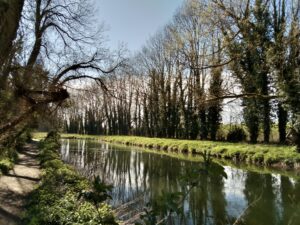New project will explore the benefit of nature on our wellbeing
A new project will explore how the quality of our parks, gardens and rivers can affect the health and wellbeing of the people living around them.
Access to the natural world has long been associated with having benefits to our health and wellbeing but, despite the majority of the population now living in urban areas, relatively little is known about how the quality of those ecosystems can affect our health.
Funded through the Natural Environment Research Council (NERC) and involving researchers from Lancaster and Liverpool University, this new network will create a community of experts across a range of disciplines, including environmental scientists, health experts, psychologists, social scientists, urban planners, community groups and policymakers.
Through a series of workshops and proof-of-concept studies, the ‘Quality of Urban Environments with Nature-Connectedness and Health’ (QUENCH) network will explore the differing quality of urban nature, from soil quality, pollution levels, size and biodiversity, and how this links to nature-connectedness and health.

The aim is to discover more about how the quality of our urban parks, gardens, woods, food-growing spaces and waterways influences the connections we feel to nature, and the knock-on effects for health and wellbeing, helping to inform the future management and planning of natural spaces in our towns and cities.
Professor Jessica Davies, Principal Investigator on the QUENCH project, said: ‘Our experiences through the pandemic have highlighted the importance of connecting with nature.
‘Lots of people sought out and visited natural environments, like parks and woodland, near where they lived and felt better for doing so. There’s lots of good science too that demonstrates the health and wellbeing benefits of connecting with nature.
‘However, we need to know more about how the health of the ecosystems themselves matters for our health and wellbeing. Towns and cities are the fastest-growing habitats on Earth, and urbanisation has huge effects on the spatial layout of ecosystems, the species that reside in them, and the local climate and pollutants they experience.
‘We need to understand how all these human-influenced conditions affect ecosystem health, and what, in turn, are the consequences for how we experience those environments and nature.’















